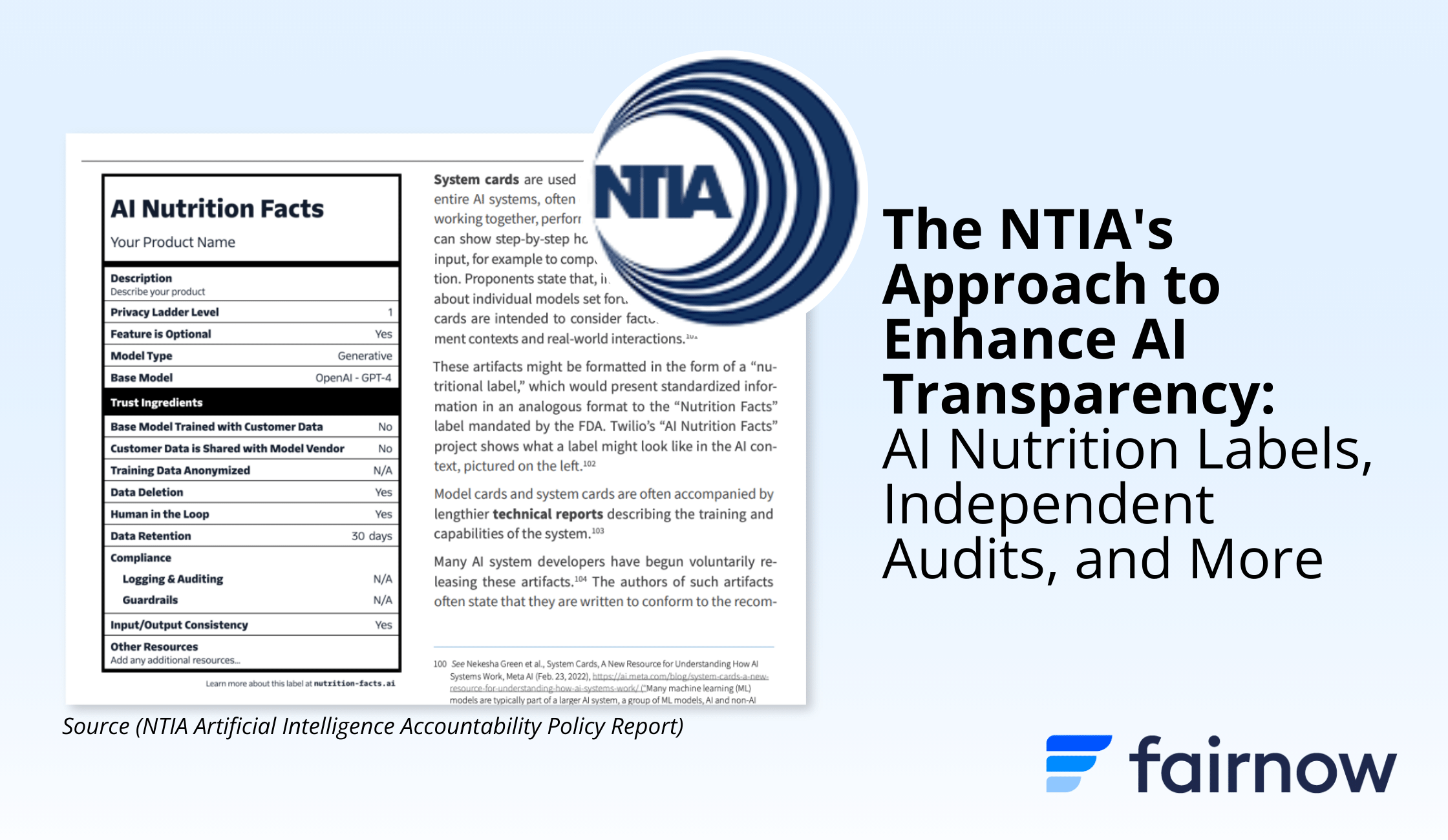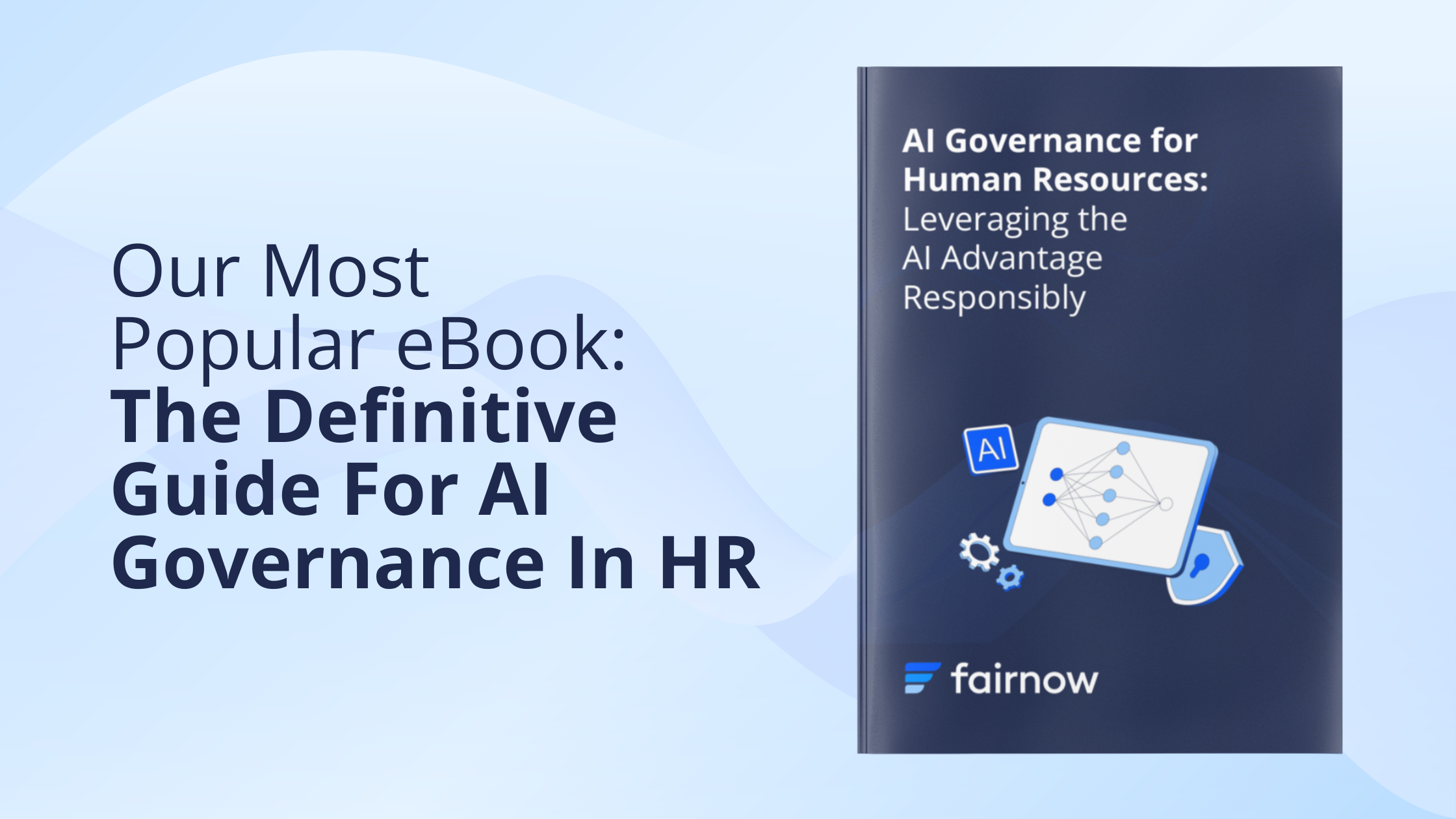Our Perspective: The recent announcement by the National Telecommunications and Information Administration (NTIA) represents another move towards promoting accountability and transparency within the AI sector. For enterprises employing AI, this development suggests a future where independent audits and “AI nutrition labels” may become standard, necessitating a forward-thinking stance on compliance.
Today’s announcement from the National Telecommunications and Information Administration (NTIA) is a another move towards enhancing the accountability and transparency of artificial intelligence. Most notably, the Biden administration is advocating for mandatory audits of high-risk artificial intelligence systems. This move also aligns with the White House’s October executive order, published in October 2023, reinforcing the need for regulations and standards as AI technology rapidly evolves.
With the unveiling of its 77-page AI Accountability Policy Report, the NTIA sets forth a comprehensive strategy aimed at establishing a robust auditing framework for AI systems, especially those categorized as high-risk (think healthcare, lending, employment, criminal justice) due to their potential implications for public safety and rights.
Don’t have time for a 77-page read this afternoon? Here are the key highlights from the NTIA announcement:
-
Independent Audits:
- The NTIA advocates for independent audits of AI systems deemed high-risk, drawing parallels to the rigor of financial audits. This approach is intended to ensure that AI systems operate transparently and adhere to ethical standards.
-
Accountability and Transparency:
- The report emphasizes the need for AI systems to be transparent and accountable. This includes comprehensive documentation of AI procedures and results, along with measures to hold developers accountable for any adverse effects their AI systems might produce.
-
Legislative and Regulatory Framework:
- The recommendations are expected to influence upcoming legislative and regulatory efforts. With AI regulation a priority for lawmakers, the NTIA’s report will likely serve as a critical reference point for crafting effective AI governance policies.
-
Strengthening Public and Market Confidence:
- By implementing these accountability measures, the NTIA aims to boost confidence among the public and within the marketplace regarding the use and reliability of AI technologies. Trust is seen as essential for the broader acceptance and integration of AI into various sectors.
-
Collaboration and Capacity Building:
- The NTIA calls for collaborative efforts between the federal government, private sector, and advocacy groups to develop auditing standards and liability frameworks. This includes support for initiatives like the U.S. AI Safety Institute at the National Institutes of Standards and Technology (NIST).
-
Innovative Tools for Compliance:
- Suggestions such as “AI nutrition labels” for easy understanding and assessment of AI systems by consumers were proposed. These tools aim to enhance the interpretability of AI technologies, similar to how nutritional labels have done for food products.
What This Means for Businesses Using AI
For businesses deploying AI technologies, especially those in high-risk sectors (remember: healthcare, lending, employment, criminal justice), the NTIA’s announcement signals significant new requirements. Companies should prepare for the possibility of undergoing independent audits, which would necessitate a thorough review of their AI systems to ensure compliance with emerging standards of transparency and accountability. Moreover, businesses can anticipate a shift towards more stringent documentation and reporting requirements. This shift may require adjustments in how AI technologies are developed, deployed, and maintained. Additionally, the focus on independent audits and public confidence suggests that businesses may need to invest in AI governance software that verifies the reliability and ethical integrity of their AI systems. Finally, the NTIA’s emphasis on collaboration and capacity building offers businesses the opportunity to engage proactively with regulatory processes. By participating in the development of standards and best practices, companies can help shape the evolving AI regulatory landscape, ensuring that it supports innovation while protecting public interest.Keep Learning



